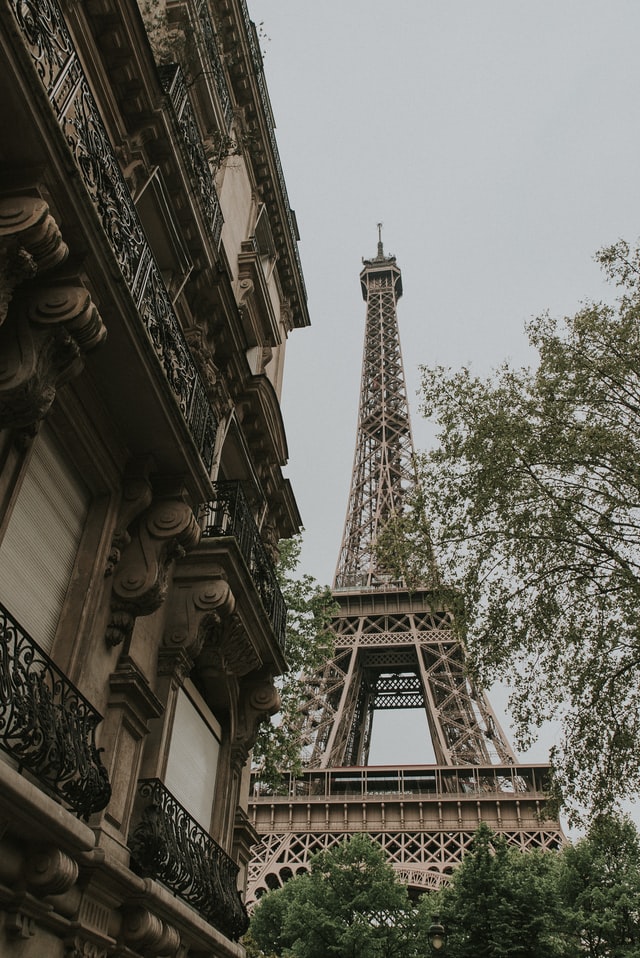Negotiating Race Relations in France

As a Liberian-American ESL teaching assistant in Valence, negotiating the everyday reality of race relations in France in my second language can be fraught with confusion and nuance.
“You look so colorful today! You’re a femme coloré.” A male coworker said to me one day.
Immediately, another of my coworkers began to laugh. “She’s a ‘colored woman’ is she?” she said, chuckling.
I wasn’t immediately sure how to react. I was trying to decipher the situation in my second language, French, and felt lost within the possible meanings. “But…he didn’t mean it like that, did he?” I asked. In addition to being Liberian-American, I was wearing a cheerful pullover of spring green, navy, and sky blue over a teal skirt at the time.
My colleagues quickly reassured me – they were talking about my outfit originally, not my skin color. No harm was meant, though the idea of my colleague calling me a “colored woman” remained mildly funny to both. Though I was not offended by the incident, it made me think about race relations in France, and where I fit into these cultural norms.
I wasn’t immediately sure how to react. I was trying to decipher the situation in my second language, French, and felt lost within the possible meanings.
Since 2004, it has been illegal to wear overtly religious symbols in French public schools. The ban is based on a 1905 law establishing French secularism (called la laïcité). Allegedly a legacy of the French Revolution that prevents discrimination and builds national solidarity, in reality the ban is currently part of anti-Muslim sentiment in France. I had heard and discussed the ban in French class before I ever came to France. At that time, it was something that made my American sense of equality and equity bristle, even if I tried to see both perspectives. But it did not affect me and I never really thought it would.
In the Black hair community, I am what is called a “natural.” This means that I do not chemically alter my hair and it remains as curly as when I was born. I style my own hair – in braids, twists, buns – but it so happened one day that my hair was less than glamorous. As I would do in the States, I reached into my closet and covered my shame with a bright head kerchief. I went to school as usual, prepared to teach.
As I gathered my teaching materials for the day in the teachers’ room, a colleague approached me.
“I love the colors of your kerchief,” she said. “But… it looks like a headscarf – a hijab – and I don’t want the students to get the wrong idea and wonder why you’re allowed to wear it and they aren’t. If you just make it cover a little less of your hair, then it’d be fine.”
In France, black-white relations do not consume racial discourse. They are not “the point.” Here it’s French-Muslim relations.
I was surprised. Surprised by the fact that I would have to reveal my inadequately styled hair, that something I was so used to doing in the US could now be mistaken for a religious symbol, that I was now being affected by something I had only abstractly considered in class. I was also a bit torn. My kerchief wasn’t religious, so should it be legally controlled? But I still rolled my kerchief and hastily smoothed my hair into some semblance of decency.

In France, black-white relations do not consume racial discourse. They are not “the point.” Here it’s French-Muslim relations. But the fact is, the ban catches Muslims and non-Muslims alike in its net, rendering contentious something as theoretically neutral as my kerchief. More than in the US, French consciousness on black-white relations is both limited and considered a fait accompli. Racial and cultural sensitivity is viewed as a hill already traversed – after all, France is all about secularism and equality, they say.
Consequently, when I lead discussions on gun control and race in the US, it feels awkward to bring these issues up with my French students. I don’t know how to indicate that a national discourse on black-white relations still needs to happen in France; neither do I want to support their view of the US as a haven of discrimination. This is my experience as a Black American in France – being unintentionally made part of the point as I try to avoid cultural landmines.
Photo credits for Negotiating Race Relations in France by Unsplash.









I’m a black female with natural hair and it annoys me that I might not be able to wear my scarf because people see it as religious when it’s not. I’ll be doing TAPIF this coming year so thanks for sharing your insight.